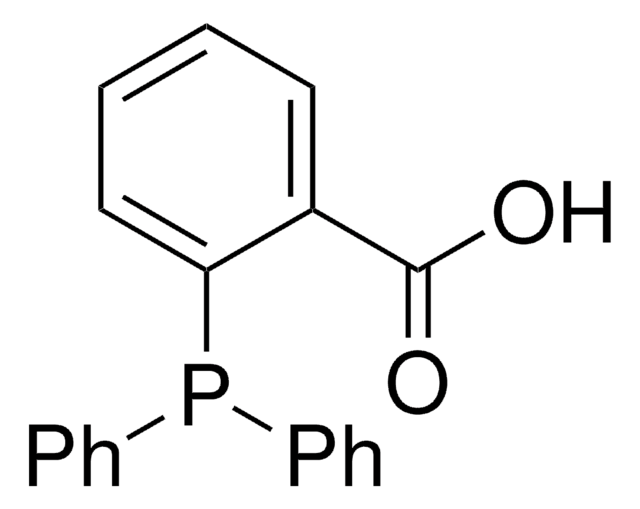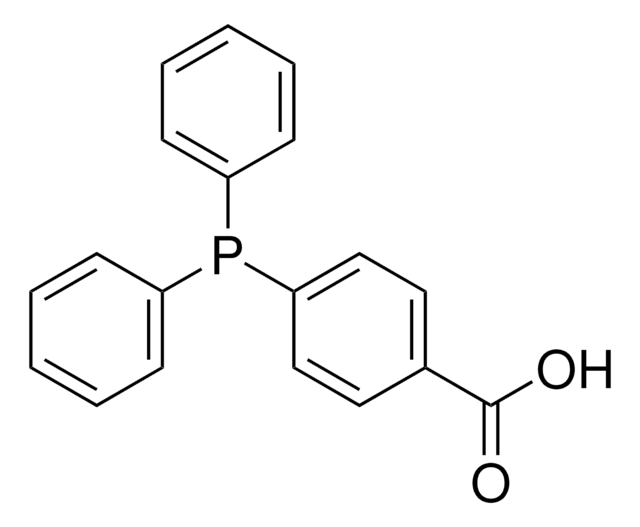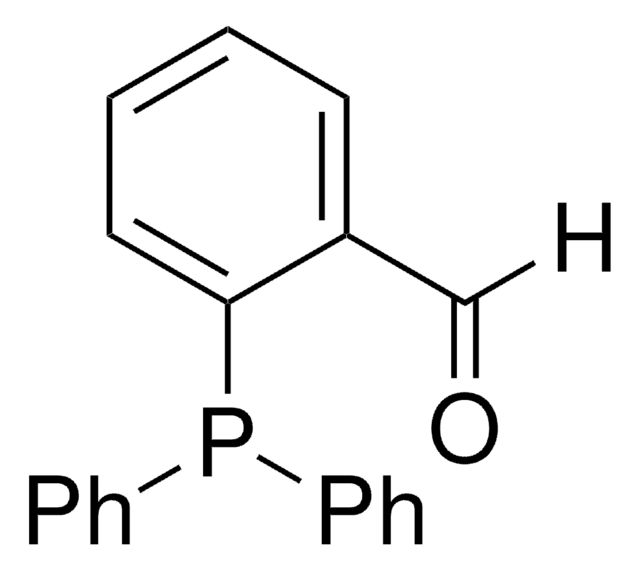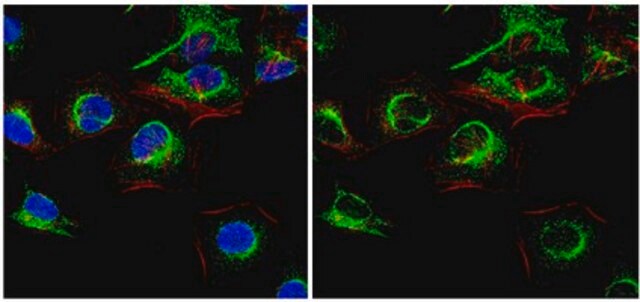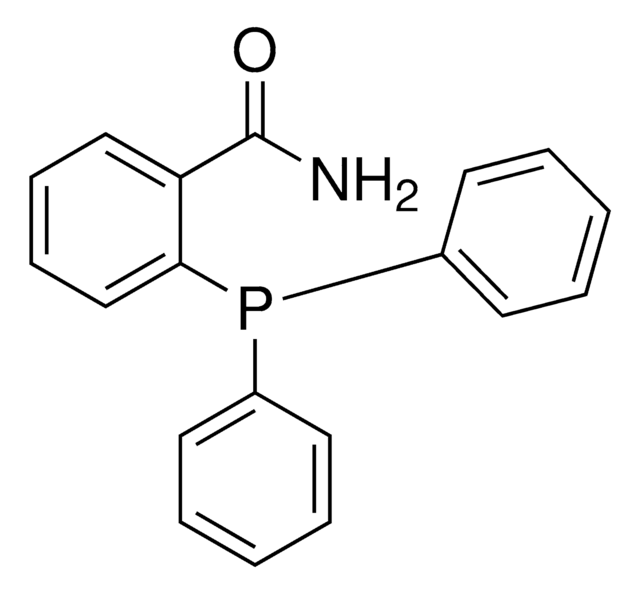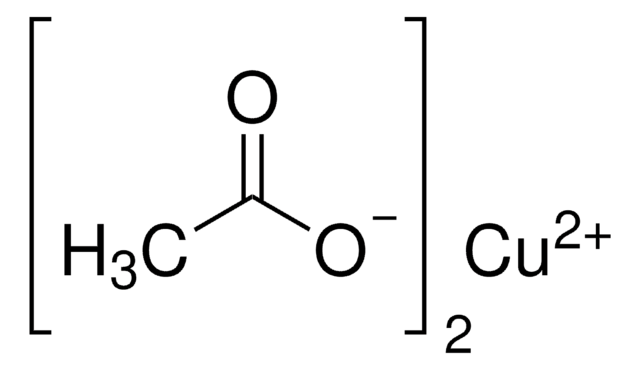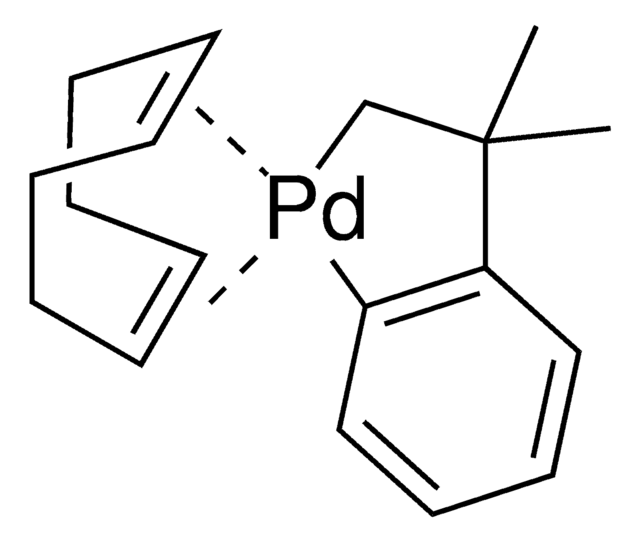679011
2-(Diphenylphosphino)terephthalic acid 1-methyl 4-pentafluorophenyl diester
97%
Synonym(s):
1-Methyl-4-(pentafluorophenyl)-2-(diphenylphosphino)-1,4-benzenedicarboxylate
About This Item
Recommended Products
assay
97%
form
solid
reaction suitability
reaction type: click chemistry
mp
109-111 °C
storage temp.
−20°C
SMILES string
COC(=O)c1ccc(cc1P(c2ccccc2)c3ccccc3)C(=O)Oc4c(F)c(F)c(F)c(F)c4F
InChI
1S/C27H16F5O4P/c1-35-27(34)18-13-12-15(26(33)36-25-23(31)21(29)20(28)22(30)24(25)32)14-19(18)37(16-8-4-2-5-9-16)17-10-6-3-7-11-17/h2-14H,1H3
InChI key
OURNVXDJALDDIG-UHFFFAOYSA-N
Application
- Staudinger ligation reagent for the conjugation of amine and azide containing compounds or biomolecules.
- The amine functionalized molecule first reacts with the phosphine through the activated pentafluorophenyl ester.The azide-molecule is then reacted with the newly labeled phosphine to form the iminophosphorane, and the aza-ylide is subsequently captured by the methyl ester to yield the covalent conjugated product.

The Staudinger Ligation: A High-Yield, Chemoselective, and Mild Synthetic Method
Related product
Storage Class
11 - Combustible Solids
wgk_germany
WGK 3
flash_point_f
Not applicable
flash_point_c
Not applicable
Choose from one of the most recent versions:
Certificates of Analysis (COA)
Don't see the Right Version?
If you require a particular version, you can look up a specific certificate by the Lot or Batch number.
Already Own This Product?
Find documentation for the products that you have recently purchased in the Document Library.
Articles
Chemoselective ligation strategies are a key success factor for chemical biology research. Ligation techniques open pathways to fully synthetic large peptides and even proteins.
The reaction between an azide and a phosphine forming an aza-ylide was discovered almost a century ago by Nobel Prize laureate Herrmann Staudinger.
Our team of scientists has experience in all areas of research including Life Science, Material Science, Chemical Synthesis, Chromatography, Analytical and many others.
Contact Technical Service